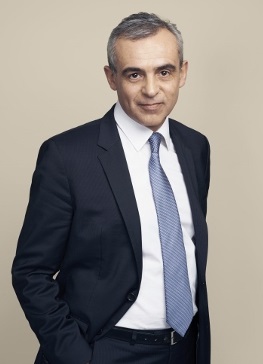The biggest listed companies in the UK could be putting their balance sheets at risk by cutting pension contributions, consultancy firm LCP has warned.
In a report analysing the 87 FTSE 100-listed companies with defined benefit pension funds, LCP said aggregate contributions from sponsors in 2014 fell by more than 15% compared to 2013. The report also noted that 12 companies’ contributions were lower than or equal to the value of benefits built up by members.
However, pension liabilities and shortfalls “potentially present significant financial risks to their sponsors”, LCP said. Falling bond yields have pushed up liabilities for pension funds across Europe in recent years.
Bob Scott, partner at LCP and lead author of the report, said the estimated total liabilities of FTSE 100 pension funds had doubled since January 2005. “Other things being equal, this increases the risk that these schemes present to their sponsoring companies,” he said.
.jpg) Source: LCPFrom October this year, UK company
directors will be required to carry out “robust” assessments of the risks
facing their businesses, including those that could threaten its solvency.
Directors will also be required to confirm whether they expect the company to
continue to operate in its current position, taking the known risks into
account.
Source: LCPFrom October this year, UK company
directors will be required to carry out “robust” assessments of the risks
facing their businesses, including those that could threaten its solvency.
Directors will also be required to confirm whether they expect the company to
continue to operate in its current position, taking the known risks into
account.
“Pension risk may well be one of the main risks for FTSE 100 companies with legacy defined benefit pension schemes,” LCP said. “The new requirement may therefore increase the level of disclosure required in relation to this.”
The chairman of the International Account Standards Board, Hans Hoogervorst, has previously questioned whether companies paying large dividends to shareholders should instead put the money towards funding pension deficits.
Speaking at a UK pensions conference earlier this year, Hoogervorst said it was “a bit misleading to investors and also to employees when a company shows hunky dory P&L numbers while a problem is festering in the background. It is at least something that needs to be thought about.”
Six FTSE 100 company pensions had liabilities in excess of their sponsor’s market capitalisation, LCP reported. This included International Airlines Group—the parent company of British Airways—which has pension liabilities more than double its market value.
BAE Systems’ accounting deficit was more than 35% of its market cap in its last report and accounts, LCP added.
The 10 companies with the biggest pension liabilities reported obligations of nearly £350 billion, LCP’s report said—63% of the total for all 87 companies.
Separate research by Australian academics, published earlier this year, found that US firms were more likely to increase investment in research and development than pay money into pension funds. The authors called for stricter funding rules to require pension funds to be fully funded.
Read LCP’s report, “Accounting for Pensions 2015”, in full.
Related:Should Sponsors Cut Dividends to Close Pension Deficits? & Deficit Denial: Companies ‘Increase R&D Instead of Pension Payments’

 Pascal Blanqué, Amundi
Pascal Blanqué, Amundi